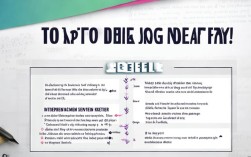“Truth” 这个词在雅思口语中是一个非常棒的话题,因为它可以引出无数个人经历、观点和深刻的讨论,无论是在 Part 1 的日常寒暄,Part 2 的人物/事件描述,还是 Part 3 的社会议题探讨,你都有可能遇到与 "truth" 相关的问题。

下面我将为你详细拆解如何在雅思口语的三个部分中应对与 "truth" 相关的话题,并提供高分词汇、地道表达和范例。
Part 1: 日常话题
在 Part 1,问题通常比较简单直接,旨在让你放松并进入状态。
常见问题可能包括:
- Do you always tell the truth?
- Is it important to tell the truth?
- Have you ever told a "white lie"?
- Do you think children can tell the truth easily?
- Do you think it's easy to be honest all the time?
高分策略:
- 直接回答 + 解释原因: 不要只回答 "Yes" 或 "No",给出一个清晰的答案,并立即用一个简短的理由来支撑。
- 使用个人经历: 用 "I think..." 或 "From my perspective..." 来引出你的观点,让回答更真实、更有说服力。
- 展示词汇多样性: 避免反复使用 "tell the truth",可以换成
be honest,be truthful,speak the truth,be candid/frank。
范例回答:
Q: Do you always tell the truth?
(高分回答) "To be perfectly honest, I try my best to be truthful, but I'd be lying if I said I was a hundred percent honest all the time. I believe honesty is the cornerstone of any healthy relationship, whether it's with friends or family. However, there are moments where a small 'white lie' might be necessary to spare someone's feelings. For instance, if a friend asks if I like their new haircut, and I don't, I might say it looks nice just to avoid hurting them. It's a delicate balance between being honest and being considerate."
解析:
- To be perfectly honest...: 开头非常地道。
- I'd be lying if I said...: 这是一个非常高级的句式,表示“如果我这么说,就是在撒谎”,巧妙地回答了问题。
- Cornerstone: (基石) 比 "important" 更高级的词汇。
- White lie: (善意的谎言) 必备词汇。
- Spare someone's feelings: (顾及某人的感受) 地道表达。
- A delicate balance: (微妙的平衡) 展示了思考的深度。
Part 2: 个人陈述
Part 2 是你展示语言能力的关键,题目通常会要求你描述一个与“真相”相关的事件、人物或经历。
可能出现的题目卡:
- Describe a time you told a difficult truth.
(描述一次你讲述一个艰难真相的经历。)
- Describe a situation where you had to make a difficult decision between telling the truth and keeping a secret.
(描述一个你必须在说实话和保守秘密之间做出艰难决定的情况。)
- Describe a person you know who is always honest.
(描述一个你认识的总是很诚实的人。)
高分策略:
- 使用故事结构: 遵循 Situation (背景) -> Task (任务) -> Action (行动) -> Result (结果) 的结构来讲述你的故事。
- 丰富的细节: 描述当时的心情、环境、以及你内心的挣扎,这能让你的故事生动起来。
- 展示情感和反思: 不仅要讲“发生了什么”,更要讲“你有什么感受”以及“你从中学到了什么”,这是考官非常看重的部分。
范例回答 (Describe a time you told a difficult truth):
"Alright, I'd like to talk about a time when I had to tell a difficult truth to my close friend, Lisa. This happened a few years ago when we were both applying for our dream universities.
(Situation) Lisa had been working incredibly hard for her entrance exam, and she was convinced she had aced it. A few days later, the results were posted online. I checked mine first and saw I didn't get into my top choice, feeling pretty down. Lisa, on the other hand, was too nervous to check, so she asked me to look for her.
(Task & Action) I saw her score, and it was unfortunately not high enough for the program she wanted. The dilemma was huge. On one hand, I wanted to protect her feelings and maybe tell her a little white lie, saying the website was down or something. But on the other hand, I knew she deserved to know the truth so she could start making a backup plan. After a moment of hesitation, I decided that being a true friend meant being honest. I took a deep breath and told her exactly what I saw. I could see the disappointment in her eyes, and my heart sank. I immediately tried to comfort her, reminding her that this was just one path and there were many other amazing opportunities waiting.
(Result) In the end, she was initially upset, but she eventually calmed down and we started looking at other options together. She ended up getting into another great university that she actually loves even more. Looking back, I'm really glad I chose to tell the truth. It was tough in the moment, but it showed the strength of our friendship. I learned that sometimes, the most difficult conversations are the ones that lead to the best outcomes in the long run."
解析:
- Incredibly hard: 非常努力,比
very hard更生动。 - Dilemma: (困境) 核心词汇。
- Protect her feelings: 保护她的感受。
- Took a deep breath: 深吸一口气,描述了当时的紧张。
- My heart sank: 我的心沉了下去,表达了愧疚和难过。
- Looking back...: 回顾过去,引出反思。
- In the long run: 从长远来看,展示了思考的深度。
Part 3: 深入讨论
Part 3 考官会根据你的 Part 2 进行追问,探讨更广泛的社会、文化或抽象问题,这是展示你分析能力和高级词汇的绝佳机会。
可能追问的问题:
- Why do you think some people find it hard to tell the truth?
- Is it always better to tell the truth, even if it hurts someone's feelings?
- How has social media changed the way people perceive truth?
- Do you think honesty is valued differently in different cultures?
- Should parents always be completely honest with their children?
高分策略:
- 抽象概念具体化: 将“诚实”这个抽象概念与具体的社会现象(如社交媒体、政治、教育)联系起来。
- 多角度分析: 使用 "On the one hand... on the other hand..." 或者 "From a societal perspective... from an individual's perspective..." 来展示你能够从不同角度看问题。
- 使用连接词和复杂句式: 流利地使用
however,furthermore,consequently,it can be argued that...等来构建复杂的论证。
范例回答 (Q: Is it always better to tell the truth, even if it hurts someone's feelings?)
"That's a fascinating and rather complex question. I don't believe it's as simple as a clear 'yes' or 'no'. On one hand, I fundamentally agree that honesty is crucial for building trust and integrity in any relationship. If we constantly sugar-coat the truth or lie to protect others, it can create a fragile foundation that might break when the real truth eventually comes out. On the other hand, I also recognize that the delivery of the truth is just as important as the truth itself. This is where the concept of 'brutal honesty' comes in, which I think is often counterproductive. For example, bluntly telling someone their life-long dream is unrealistic without any empathy or constructive advice can be more damaging than helpful. Therefore, I think the key lies in being compassionate and truthful. It's about finding a balance—being honest, but also being kind and considerate. It's a skill, really, known as emotional intelligence, which involves understanding the impact of your words on others."
解析:
- Fascinating and rather complex question: 高分开场白,表示你理解了问题的深度。
- Fundamentally agree: 基本上同意,比
I agree更有力。 - Sugar-coat the truth: 粉饰太平,非常地道的表达。
- Brutal honesty: (残酷的诚实) 高分词汇。
- Counterproductive: (适得其反的) 准确的学术词汇。
- Compassionate and truthful: 既富有同情心又诚实,精准地概括了核心观点。
- Emotional intelligence: (情商) 展示了知识面。
在雅思口语中谈论 "truth",关键在于:
1











